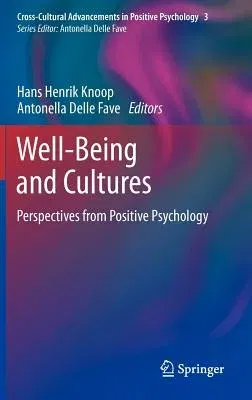Well-Being and Cultures: Perspectives from Positive Psychology (2013)Hardcover - 2013, 1 August 2012

Qty
1
Turbo
Ships in 2 - 3 days
In Stock
Free Delivery
Cash on Delivery
15 Days
Free Returns
Secure Checkout

Part of Series
Cross-Cultural Advancements in Positive Psychology
Print Length
222 pages
Language
English
Publisher
Springer
Date Published
1 Aug 2012
ISBN-10
9400746105
ISBN-13
9789400746107
Description
Product Details
Book Edition:
2013
Book Format:
Hardcover
Country of Origin:
NL
Date Published:
1 August 2012
Dimensions:
23.39 x
15.6 x
1.75 cm
Genre:
Psychological
ISBN-10:
9400746105
ISBN-13:
9789400746107
Language:
English
Location:
Dordrecht
Pages:
222
Publisher:
Weight:
530.7 gm